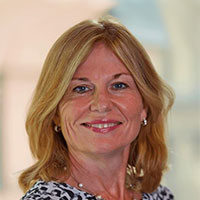

Premiere of “First 100 Years” – Celebrating the Anniversary of the Sex Disqualification Act 1919 Allowing Women to Practice Law
Over 70 clients and contacts enjoyed an evening with barrister, campaigner and social reformer, Baroness Helena Kennedy QC last night at national law firm Irwin Mitchell’s Holborn offices and were given an exclusive premier of the film “First 100 Years”, ahead of its official release. The evening was held in conjunction with First 100 Years and was part of a series of events celebrating the anniversary of the Sex Disqualification (Removal) Act 1919 allowing women to be “recognised as persons” and practise law.
Alison Eddy, Partner and Head of Irwin Mitchell’s London Office discussed with Baroness Kennedy the successes of women in the law over the past 100 years and the road they have travelled to achieve recognition and parity of practice with their male colleagues. Baroness Kennedy gave some thought-provoking insights into her career and observations about the law today:
• On being a female lawyer in the 1970s- “It was like being in an Evelyn Waugh novel. The stereotype of Portia prevailed- you were expected to dress up and speak like a man. They certainly didn’t expect you to have an accent or be from a working-class background”
• “I was told I couldn’t take cases that for the “Law Centre Movement “as they were “political”. Yet I had two Conservative MPS in my Chambers!”
• On sexual harassment- “I was told I wasn’t attractive enough to be sexually harassed, so what was I complaining about. “ Sexual harassment is not about being pretty- “it’s about power.”
• On quotas- following the Sex discrimination Act in 1975 the cry changed from “We don’t have women “to “Don’t worry we’ve got one!”
And today
• On social media – despite its merits “it’s opened the door for revenge porn and trolling”. “It’s allowed women to share their experiences- but it’s also made it more difficult for the police and lawyers to gain a rape prosecution. Posts revealing how women have dressed or acted in the past are used in Court against them.”
• On the #MeToo Movement- “It’s a civil disobedience movement in the spirit of the suffragettes, borne out of a frustration that the legal system has failed to give many women a proper redress- so they have had to go back to “naming and shaming”. “It’s putting a brick through the window of the legal system.”
• On domestic violence- “It’s sadly still very much alive. Police get a call a minute over domestic violence. Two women a week are killed by their partners.”
• On Human Rights- it’s currently under threat, “Look at the brazen attitude of Putin or the fact that the Prince of Saudi Arabia was “greeted at Davos” as if nothing had happened (in Turkey). Lawyers in Turkey or Zimbabwe or Sudan are being put in prison just for trying to help people get justice."
• On her move to the House of Lords in 1997 “I’m almost a member of the Establishment- well with one foot outside! I’ll always be a campaigner.”
• On being a lawyer today. “It’s incredibly expensive to get through all the training. I worry not enough will be able to come through.”
• On the reluctance of men to be mentors in today’s politically correct environment, “That’s a shame. We need men to sign up to this too. But men do know the difference between complimenting a woman on her dress and putting a hand up her skirt”
• On the male/female ratio today- "There are lots of good talented black and Asian women coming through and certainly the ratios of women to men are improving. But there are still areas of the law where they are extremely rare- the well-paid commercial chambers for example. And look at city firms. It’s changing, but there is still a long long way to go.”
Expert Opinion
“We are extremely proud to host this event for First 100 years and hear about Baroness Kennedy’s life and experiences.
“At Irwin Mitchell we are committed to promoting issues around gender equality, diversity and inclusion in the work place and through IM Powered, our internal networking group and our IM Diversity Board, we are committed to ensure that all individuals are recognised for their talents and abilities regardless of gender, disability, sexual orientation, race or age.
“Given what has been achieved for women in the last 100 years, it will be exciting to see what is achieved in the next 100 as our workforce continues to diversify and new talent come forward.”
Alison Eddy - Partner


